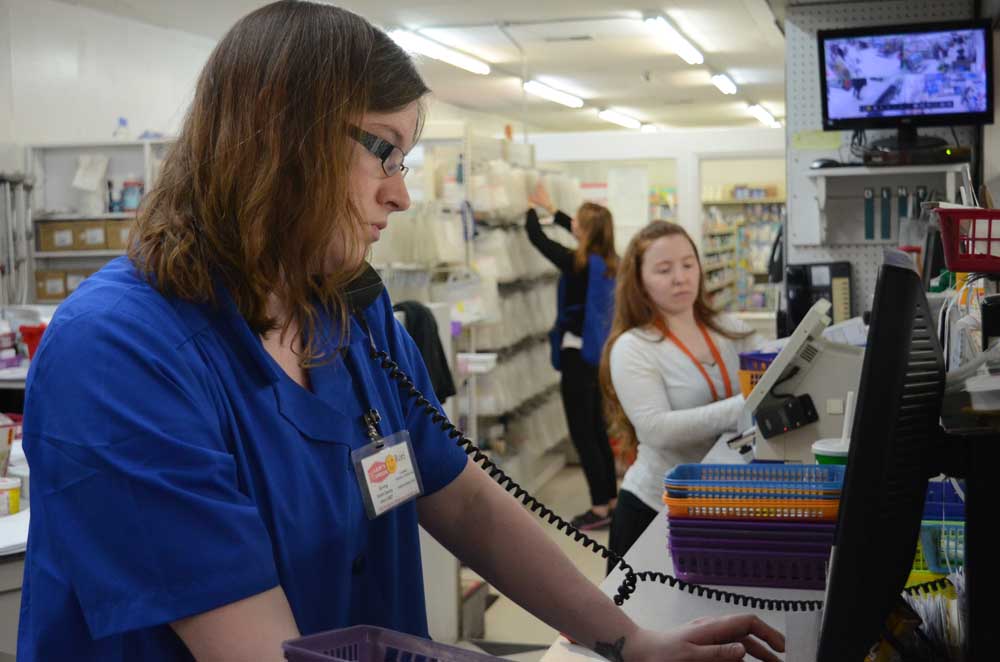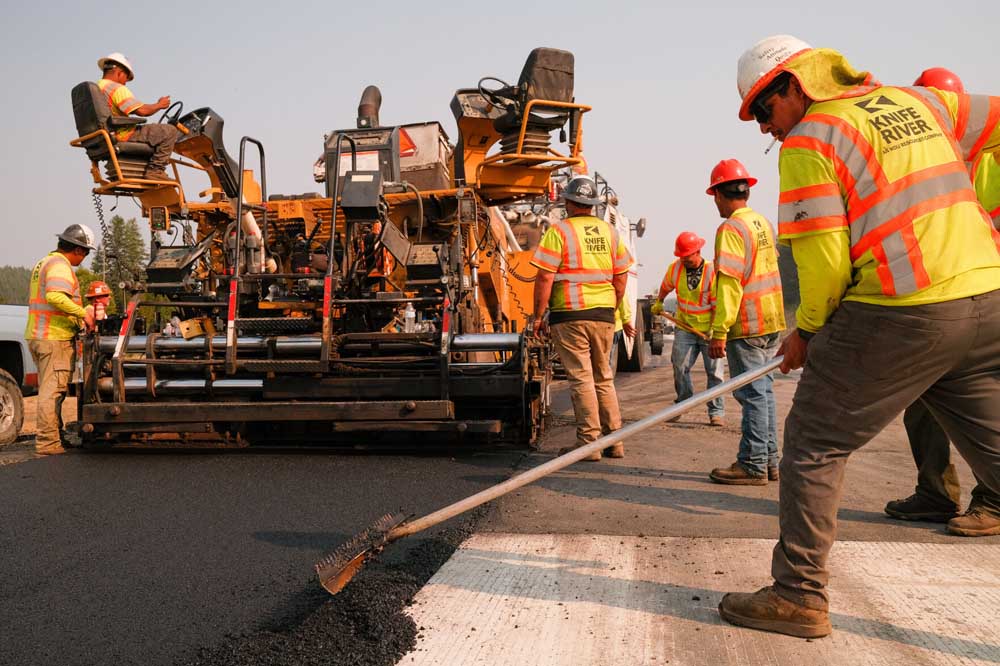MEDICAL GUIDE: How to ensure medication compliance
Published 12:00 pm Thursday, February 13, 2020

- Len's Drug Pharmacy Technician Rori Leighton, left, and Pharmacy Manager Tilli Bjornberg work in the John Day pharmacy Wednesday, April 12. Eligible Blue Mountain Hospital patients without prescription drug coverage can now obtain a 340B card from the hospital to use for significant savings on most prescriptions at Len's Drug.
When people become noncompliant with medication, it can lead to increased illness and death.
It is estimated that noncompliance incurs costs of approximately $100 billion annually. In fact, increasing compliance of existing medication therapy may have a greater effect on health than changing or improving a specific medication therapy.
Just over 50% of all patients taking medication are not compliant with the way in which it was prescribed. That is a lot of noncompliance. Of all medication-related hospitalizations, at least one-third, and up to two-thirds, are related to poor medication compliance.
On one hand, not all of the blame can land on the patient alone. The entire health care system can have positive and negative impacts on medication compliance. The system often has too many moving parts to make consistent medication compliance feasible. Even with all components working in the patient’s best interest, there can be breakdowns.
Your pharmacy team at Len’s Drug is committed to helping in whatever way we can to increase medication compliance. We have several programs that can help you and your loved ones increase their compliance and, thus, decrease their potential adverse effects from noncompliance.
Refills Made Simple: This program strives to synchronize all the patient’s chronic or maintenance medications to be filled at the same time each month, or every three months for plans that allow a 90-day supply. One factor that often adds to medication noncompliance is an excessive number of trips to the pharmacy. While we love seeing our patients, we do not want to be a stumbling block to their medication compliance.
Our pharmacy team will call the patient five to seven days ahead of time to make sure there have not been any changes in their medication list. We contact the doctor to obtain needed refills, and we make sure we have the necessary quantity of medication, which all leads to one trip to the pharmacy and increased compliance.
Salad Packs: These salad packs are named because we are placing all the patient’s medications for a particular dosing time in one blister. This makes it easier to ensure that all medications for each dosing time are administered.
Even with some effective ways to increase medication compliance, we can never underestimate the effectiveness of contacting the pharmacy a minimum of three days prior to needing your refill. With the moving parts of the health care system, this extra time can be very necessary to prevent a break in therapy.
Most importantly, the pharmacy team at Len’s Drug is always available to answer your questions and assist you with improving your medication compliance.
The Center for Drug and Health Information Services, offers these 10 tips for increased medication compliance:
1. Integrate the medication schedule into your daily life.
Fit the medication into your life instead of structuring your life around your medication.
2. Count out your doses in advance.
Use a pill box to prepare your medication a week or even two weeks in advance. Note, some medications need to be refrigerated. If that is the case, keep the pill boxes in the refrigerator or a cool place.
3. Keep a checklist.
Make a daily checklist of the medication you have to take and the times you should take them. Check off each dose after it is taken. This will help to avoid missed or double doses.
4. Use a beeping alarm.
Use a beeping watch or timer to remind you when a dose is due.
5. Put dosage times into your daily planner.
Just like an appointment, add your medication doses into your daily planner to remind you when a dose is due.
6. Plan ahead for traveling, refills and weekends.
Pack your medications and keep them with you when traveling. Keep in mind that your schedule may change while on vacation, and you will need to adjust how you take your medication. Also, plan ahead for your refills. Don’t wait until you are out to call your pharmacy to order a refill. Give the pharmacy a minimum of two to three days to get your refills ready.
7. Arrange for privacy.
If you want to hide the fact you take medication, arrange for some private time at work when you can take your medication. Scout out a place such as a bathroom where you can take your medication in private.
8. Keep a diary.
Write down successes as well as failures to remind you what has worked and what has not. Record missed doses to identify times or doses that need to be worked on to improve medication compliance.
9. Establish and use a support network.
Find friends or family that can assist you in taking your medication. Local “buddy lines” can help with reminders and serve as a partner in therapy. Realizing others are struggling as you are can help with feelings of isolation. Develop a working relationship with your health care time (doctor, pharmacist and caregiver).
10. Leave yourself notes and reminders.
Leave notes around the house where you will be sure to see them: the refrigerator next to the TV, the bathroom mirror.






